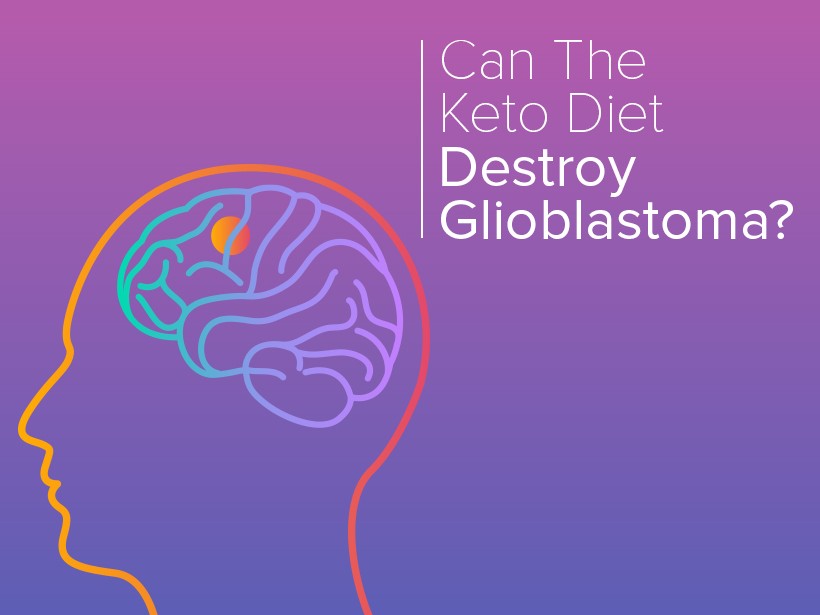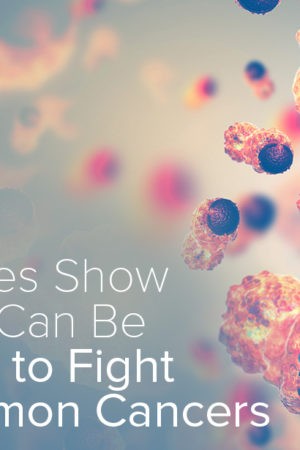Glioblastoma, a form of brain cancer, is an aggressive brain tumor found in adults. It typically forms from astrocytes, which are star-shaped cells found in your brain, specifically your cerebrum.1 The cerebrum is the largest part of your brain. One unique aspect of this cancer is that it has the capability to make its own blood supply through angiogenesis, which allows it to take nutrients from your blood so it can grow. Typically, this is treated by surgery, radiation, chemotherapy, and electric field therapy. Researchers today believe that the ketogenic may be another viable option.
Low Survival Rates
Martin-McGill and his colleagues at the Institute of Translational Medicine at the University of Liverpool in Brownlow Hill, Liverpool are currently studying the ketogenic diet as a therapy for glioblastoma. According to the study, it’s the most common malignant brain tumor in adults with a survival time median of around 12-14 months.2
Tumor Metabolism Under Acidic Conditions
Prior to his study, Woolf et. al. looked at tumor metabolism and the effect of the ketogenic diet has on it, specifically looking at B-Hydroxybutyrate. The basis for his study was the belief that a reduction in tumor growth would occur if there was less glucose in the blood by consumption of a low-carb, high-fat diet.
A Helpful Hand to Cancer Treatment Efforts
With that, the researchers believed that the diet would make radiation and chemotherapy more effective in their efforts to destroy cancer. Through their research, they found that the B-Hydroxybutyrate acid, a metabolic substrate replacing glucose in the ketogenic diet, has antitumor effects due to its epigenetic implications. Epigenetics is really a fascinating and developing field which considers gene expression outside of the DNA. In other words, just cause your DNA says one thing, with epigenetics, you can possibly produce something else not written in it.
Taking Control of Your Genome
This is a big deal because, in this particular sense, even when glucose is presented to cancer cells in the presence of B-Hydroxybutyrate(BHB), they weren’t proliferating at the same rate as they normally would. On top of that, BHB is an inhibitor of something called HDAC or IIa histone deacetylase which is a fancy term for something that takes acetyl groups (an amino acid) off of histones. Histones are essentially little balls that your DNA wrap around in order to pack tightly. HDAC normally will take the acetyl groups off of lysines on histone and non-histone proteins which causes regulation of gene expression. BHB is an inhibitor of this. So, it basically stops the acetylation process and affects what proteins are produced. Again, under these modified conditions, cancer doesn’t grow.
If cancer can’t grow, then it makes treatment with radiation and chemotherapy all the more effective. The biggest challenge with radiation and chemotherapy is killing all the cells and keeping them dead. The ketogenic diet can help make sure they stay dead.
NUTRITIONAL DISCLAIMER
The content on this website should not be taken as medical advice and you should ALWAYS consult with your doctor before starting any diet or exercise program. We provide nutritional data for our recipes as a courtesy to our readers. We use Total Keto Diet app software to calculate the nutrition and we remove fiber and sugar alcohols, like erythritol, from the total carbohydrate count to get to the net carb count, as they do not affect your blood glucose levels. You should independently calculate nutritional information on your own and not rely on our data. The website or content herein is not intended to cure, prevent, diagnose or treat any disease. This website shall not be liable for adverse reactions or any other outcome resulting from the use of recipes or recommendations on the Website or actions you take as a result. Any action you take is strictly at your own risk.
- Research Shows Improvement in Anorexia Nervosa Condition With Keto - August 6, 2018
- New Potential for Ketogenic Diet to Prevent Alcohol Withdrawal Syndrome - August 1, 2018
- Woman on Early Menopause Saved By Keto - July 25, 2018




